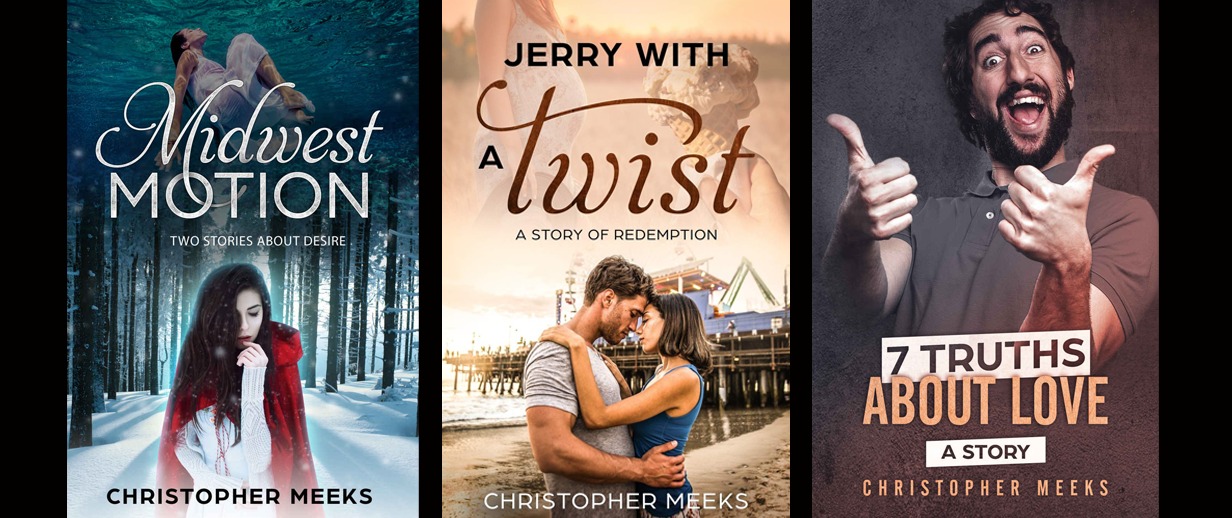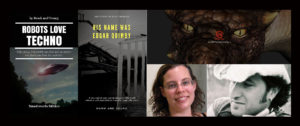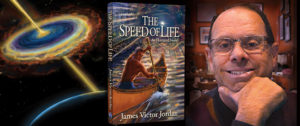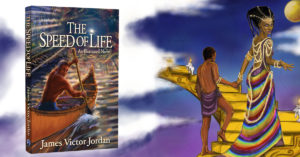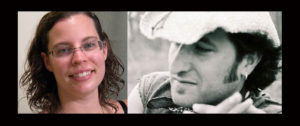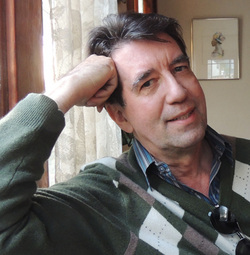
JVJ: Chris, we’ve now posted your individually published story “Jerry with a Twist” and earlier we posted my review of it. Please tell us about this series, how you came up with the idea for the series, and the stories in it.
CM: I had noticed other authors on Amazon with short books that were part of a series. They had been genre books, such as romance or mystery, but why couldn’t literary fiction be part of a series? Of course it could. I didn’t predict the quarantining we are in, but these short books in a series, on Kindle, are perfect for taking your mind off of things.
I did make “Jerry” available in print, too, as an experiment, but $6.99 is the least expensive short books can be, practically speaking, so I didn’t do it for the others.
The stories in Jerry with a Twist and Midwest Motion (which has two stories) had been published in literary journals. I decided they were perfect for Amazon Shorts, along with a new story, 7 Truths about Love. I also saw a connection among the four. They were serious with modern issues, yet funny at times. More importantly, the stories had protagonists who, despite their individual problems and stresses, were good people. You’d want to know them. They had tender hearts. Thus, the series was born.
As for content, for “Jerry,” people can read your review here.
“A Warm Front Moves from California and Deep into Minnesota” is about a young woman returning home to Minnesota after living with her boyfriend in California. He’ll be joining her soon, despite her parents thinking otherwise.
“I’d Rather Die than Go to North Dakota” is about a young Japanese mother and poet living with her American boyfriend in Los Angeles, and he just got a job at a TV station in North Dakota. She doesn’t want to go. These last two stories refer to the Midwest, so I called the two, “Midwest Motion.”
“7 Truths about Love” started simply with the title. I loved the idea of seven such truths, and I brainstormed, coming up with over twenty and editing them down to the most unusual and interesting. Then I thought of a wild story, inspired by a couple of real people and twisted up deliciously. It’s funny.
JVJ: Chris, you contributed the first guest blog posted on the website. That was back in January 2019. It’s titled “The Dream of Writing.” Let me thank you again for that contribution. You just mentioned what inspired you for “7 Truths about Love.” What was your creative inspiration or motivation for the others?
CM: Since 2006, when I had my first agent, I had focused on writing novels. Agents can sell books but rarely short stories. As my first agent told me, short story collections are often as a favor to the writer by his or her publisher. There’s not a lot of money in short fiction. However, I’ve never given up writing short stories. My life is guided by them. They are my spirituality, a place I learn, see, and realize things. Truths emerge.
My novels come with a huge framework in mind. My short stories come with just a funny or odd notion, and I play with it. I can’t write novels this way. Who wants to get to page three hundred and realize you should have made a different turn on page ten?
A short story for me starts with a fairly clear idea of the characters, often inspired by people I know or have read about. Sometimes I combine personalities, but I love knowing my characters and then putting them in painful situations and seeing what they do.
I wrote a first draft of “Warm Front” over thirty years ago, and it was never quite right. I’d work on it every five or ten years when I’d come across it. Then a few years ago, a literary journal published it after I rethought the young female protagonist’s background. Last year, I made it an Amazon Short. After that, though, its ending seemed too sad for me, so I rewrote it for my upcoming collection of stories, The Benefits of Breathing, and then updated the Amazon Short. It has a completely different ending from before. The new book’s editor, Carol Fuchs, liked it so much, she suggested it for the last story in The Benefits of Breathing.
JVJ: At this time are you planning to add additional stories to this series?
CM: No. All my recent creative energy has gone into The Benefits of Breathing, which comes out in May. The four stories in this series are in that book, as well as seven other stories. All eleven stories are related. Rod Clark, the editor and publisher of Rosebud, a national literary magazine, wrote the foreword to the book, and he sees a connection with all of them. He’s published eleven of my stories over the years, read my novels, so he understands my stories perhaps as much or more than I do.
JVJ: I believe I’ve read all of your story collections except for the new one, The Benefits of Breathing. I plan to read that collection soon. I’ve read your novels as well.
CM: You’re like Rod Clark! I’ve always been impressed with your fiction and then your ability to write so well in your reviews.
JVJ: This would be a good time for me to give a shout out to your superb novel The Chords of War. Love your writing. Comparing the stories in The Tender Heart Series with the stories in your other collections, were your processes any different? Was it more or less difficult to write the Tender Heart stories?
CM: My short stories are never difficult to write, but it doesn’t mean they come out well. As I said, it took over thirty years for “Warm Front” to hit the right spot. I can’t just write a story and then immediately know it’s finished. It has to sit around a while. When I can read a story with fresh eyes, then I can judge it better and figure out what I can take out or add.
Now that I think about your ability to write fiction and review, both skills are needed for each. One reason a story has to sit around for me is I have to be a dispassionate reviewer rather than the consumed writer. I liken it to wearing two hats. I start with the fun beret of a writer who is allowed to experiment and make mistakes and amuse himself or speedily write while consumed with emotion. Then I switch to metaphorical solid-citizen hat. The Dad hat of an editor. A fedora?
The point is that I can’t be experimental if part of me is thinking as an editor. I have to turn that off. As Annie Lamott says in her book Bird by Bird, allow yourself to write a shitty first draft. If you don’t put pressure on yourself, then sometimes genius slips in.
JVJ: Thank you for stopping by.
CM: You’re welcome. It’s a pleasure.

